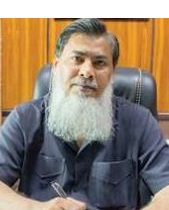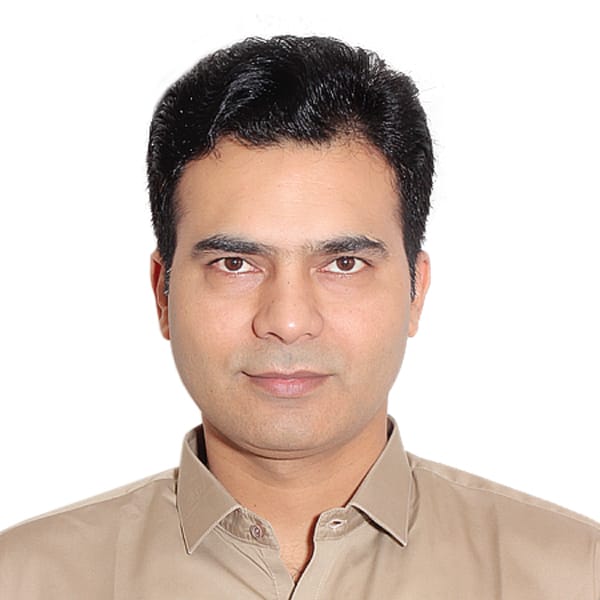
About the Department
Introduction
The Department of Energy Systems Engineering focuses on the design and operation of energy intensive processes in a more efficient and economic manner through mathematical optimization. The field of Energy Systems Engineering deals with energy efficiency, energy services, facility management, plant engineering, environmental compliance, sustainable energyand renewable energy technologies. This program offers a broad range of theoretical and applications-based courses to provide comprehensive knowledge across the field.
Thecourses offered by the department are mainly focused on major energy resources like Oil, Gas, Coal, Nuclear, Wind, Biomass andSolar. Because, it is important for stakeholders to exploit all energy resources and thereby improve energy security in order to reduce environmental pollution and economic burden caused by heavy imports of energy related products. Consequently, the emphasis has been given to cover the following important areas:
• Exploration/Exploitation and processing of various energy resources (both conventional as well as renewable).
• Environmental impacts of energy production and
utilization - Solution/ Mitigation measures for reducing environmental pollution Conservation of energy and natural resources.
• Conservation of Biodiversity & Ecosystems.
• Framing energy policy and management.
• Health and safety in industries.
Public concern about processes which affect the environment will continue to influence almost all industrial operations over the next decade and beyond. Energy production and the minimization of pollution are the key problems to be addressed for the sustainable cities of the future. In world of finite resources and witnessing a population explosion, much effort is being made to change the way in which developed societies consume energy and materials. Thus, courses are designed to provide broader technical knowledge through theory classes supported by tutorials, laboratory experiments and field visits.
The engineers graduating from this discipline are being em ployed by: W ater andPower Developm ent Authority (W APDA), Gas com panies, Oil Refineries, Oil and Gas Developm ent Corporation (O G DC), Enviro nm ental Pro tection Agency (EPA), M inistry of Clim ate Change and Altern ate Energy Board, Pakistan Intern ational Airlines (PIA), Fauji Fertilizer Com pany (FFC), Pakistan Railways, Heavy M echanical Com plex (HM C), Pakistan Ordinance Factories (POFs), Heavy Industries Taxila (HIT).
Faculty m em bers having higher qualifications from developed co untries, such as UK, Germ any, Austria, Sweden, M alaysia, France and Thailand, are im parting knowledge to students of this departm ent with best possible pedagogical m ethods and help of latest technologies. The pro active fa culty of this departm ent keeps im pro ving theirt raining and education by attending course, national and intern ational conferences, and getti ng higher degrees inland and abro ad.
Vision
To pro duce the graduate pro fessional in the targeted field to m eet the job m arket fo r socio-eco nom ic & sustainable developm ent of country.
M ission
The Departm ent is com m itted to pro vide quality education, training, and outreach services thro ugh teaching, research, innovation, and extension fo r sustainable global developm ent. The departm ent takes care of an intellectual culture that integrates theory with practice and produce graduates with knowledge, skills, and responsible citizenry.
Programme Educational Objectives (PEOs)
After graduation, the students of the Energy System s Engineering
Pro gramm e are expected to attain the fo llowing PEOs:
1. Having strong knowledge and skills in Energy Systems engineering discipline.
2. Pursuing research and innovation and be able to provide industrial solutions for mitigation of energy crisis to overcome the energy demand.
3. Participating actively in efforts to address energy, environmental and societal, challenges to achieve sustainable development.
Degree Programme
At present, the department offers the following degree programs:
1. Bachelor of Engineering (BE) in Energy Systems Engineering.
2. Master of Engineering (ME) in Energy Systems Engineering.
3. Doctor of Philosophy (PhD) in Energy and Environment
Computer Laboratories
Twofully equipped computer labs are established for students of this department. In these labs, more than SO latest PCs connected with Internet and Digital Library to access latest literature and scientific findings are available.
Seminar Library
Thedepartment has its own individual seminar library with all necessary books, journals, research articles, newsletters, etc. for the use of students and faculty members of this department.
LABORATORIES AT DEPARTMENT
Energy Laboratory
This lab is equipped with latest equipment in order to provide practical knowledge of all energy generation processing units to students. In this lab Miniature Hydel and Wind power plant, Photovoltaic cells, solar power plant and other demonstrating units are available for the students.
Environment Laboratory
In this lab, environmental pollution measuring equipment relating to air, noise & water such as, BOD, COD. DO, Turbidity, Spectrophotometer, and Conductivity / TDS meters, Particulate matter, Gas Analyzer, Weather Station are also available. Besides this water quality testing equipments are alsoavailable in this lab. This lab will provide practical knowledge about the environmental pollution to the students.
Engineering Materials & Fluid Mechanics Laboratory
Thislab provides practical knowledge regarding Engineering Materials
& Fluid Mechanics to the students. Many equipment is lying such as Universal Testing Machines (UTMs) for testing all kinds of material (Metals &Non-Metals) including rubber are also available in this lab. Other equipments related to fluid mechanics are also available to provide practical knowledge to students.
Thermodynamic Laboratory
In this laboratory numero us experim ents are being co nducted related to Therm odynam ics, Heat & M ass Transfer, Power Plant and Fuel & Com bustions. Various im portant equipm ent such as Intern al Com bustion Engines (Diesel & Petrol), miniature Steam Power Plant, Vaporjet Refrigeration Unit, Heat Transfer Unit (Conduction, Radiation, Convection) Flue gas analyzer, Fuel combustion unit,
Impulse turbine, and Cross flow heat exchanger etc., are also
available in the laboratory.
Biofuel Laboratory
This is newly established lab in the department to conduct practical related to chemical titration, treatment of crude oils, and investigation of oil quality parameters. The practical work is also carried out in order to determine Free Fatty Acids (FFA), Saponification values total acid Number etc. After analysis of crude oil biodiesel is produced through single esterification or transesterification. In addition, a processor model no Fuelpod2 with SO L capacity is available to produce biodiesel at mass production from waste cooking oil and non-edible oils which is very cheap from diesel oil.
Quality Policy
The department is committed to impart Quality Education for building and strengthening student's skills to uplift the career so as to enable them to bring brilliant academic achievements and industrial leadership.
Teaching Staff
Scheme of Studies
1st Year
1st Semester
| Code | Course | Credit Hour |
|---|---|---|
| 205 | Energy System & Resources | 3 + 0 |
| 290 | Functional English | 3 + 0 |
| 170 | Applied Calculus | 3 + 0 |
| 208 | Workshop Technolgy | 0 + 1 |
| 208 | Workshop Technolgy | 0 + 1 |
| 209 | Computer Fundamental | 2 + 1 |
| 295 | Islamic Studies/ Ethics | 2 + 0 |
2nd Semester
| Code | Course | Credit Hour |
|---|---|---|
| 211 | Engineering Thermodynamics | 3 + 1 |
| 211 | Engineering Thermodynamics | 3 + 1 |
| 212 | Basic Electrical engineering | 2 + 1 |
| 213 | Engineering Drawing & Graphics | 2 + 1 |
| 214 | Differential Equations, Power series, Laplace Transform | 3 + 0 |
| 214 | Differential Equations, Power series, Laplace Transform | 3 + 0 |
| 184 | Communication Skills | 3 + 0 |
| 216 | Pakistan Studies | 2 + 0 |
2nd Year
1st Semester
| Code | Course | Credit Hour |
|---|---|---|
| 217 | Fuels & Combustion | 3 + 1 |
| 146 | Fluid Mechanics | 3 + 1 |
| 219 | Materials for Energy Applications | 2 + 0 |
| 271 | Numerical Analysis & Computer Applications | 3 + 1 |
| 221 | Basic Electronics | 2 + 1 |
| 300 | Computer Programming | 2 + 1 |
2nd Semester
| Code | Course | Credit Hour |
|---|---|---|
| 223 | Thermal Systems Engineering | 3 + 1 |
| 224 | Hydro Power Engineering | 3 + 1 |
| 225 | Bio - Energy Engineering | 3 + 1 |
| 226 | Instrumentation & measurement | 2 + 1 |
| 227 | Statistics & Probability | 3 + 0 |
3rd Year
1st Semester
| Code | Course | Credit Hour |
|---|---|---|
| 228 | Heat & Mass Transfer | 3 + 1 |
| 229 | Photovoltaic Technology | 3 + 1 |
| 230 | Health Safety & Environment | 3 + 0 |
| 231 | Energy Conversation & Auditing | 3 + 0 |
| 232 | Hybrid Vehicles & Smarter Energy | 3 + 0 |
2nd Semester
| Code | Course | Credit Hour |
|---|---|---|
| 235 | Solar Thermal Technologies | 3 + 1 |
| 236 | Power plant Technology | 3 + 0 |
| 237 | Energy Efficiency in Buildings | 3 + 0 |
| 238 | Energy Storage Technologies | 3 + 1 |
| 239 | Technical Report Writing | 3 + 0 |
4th Year
1st Semester
| Code | Course | Credit Hour |
|---|---|---|
| 240 | Wind Energy Engineering | 3 + 1 |
| 241 | Power Transmission, Distribution & Utilization | 3 + 0 |
| 242 | Computer Applications in Energy Systems | 2 + 1 |
| 243 | Project Management | 3 + 0 |
| 54 | Final Year Project-I (FYP-I) | 0 + 3 |
2nd Semester
| Code | Course | Credit Hour |
|---|---|---|
| 244 | Climate Change & Environment | 3 + 1 |
| 245 | Energy Planning & Economics | 3 + 0 |
| 245 | Energy Planning & Economics | 3 + 0 |
| 246 | Clean Coal Technologies | 3 + 0 |
| 276 | Entrepreneurship & Innovation | 2 + 0 |
| 55 | Final Year Project-II (FYP-II) | 0 + 3 |






